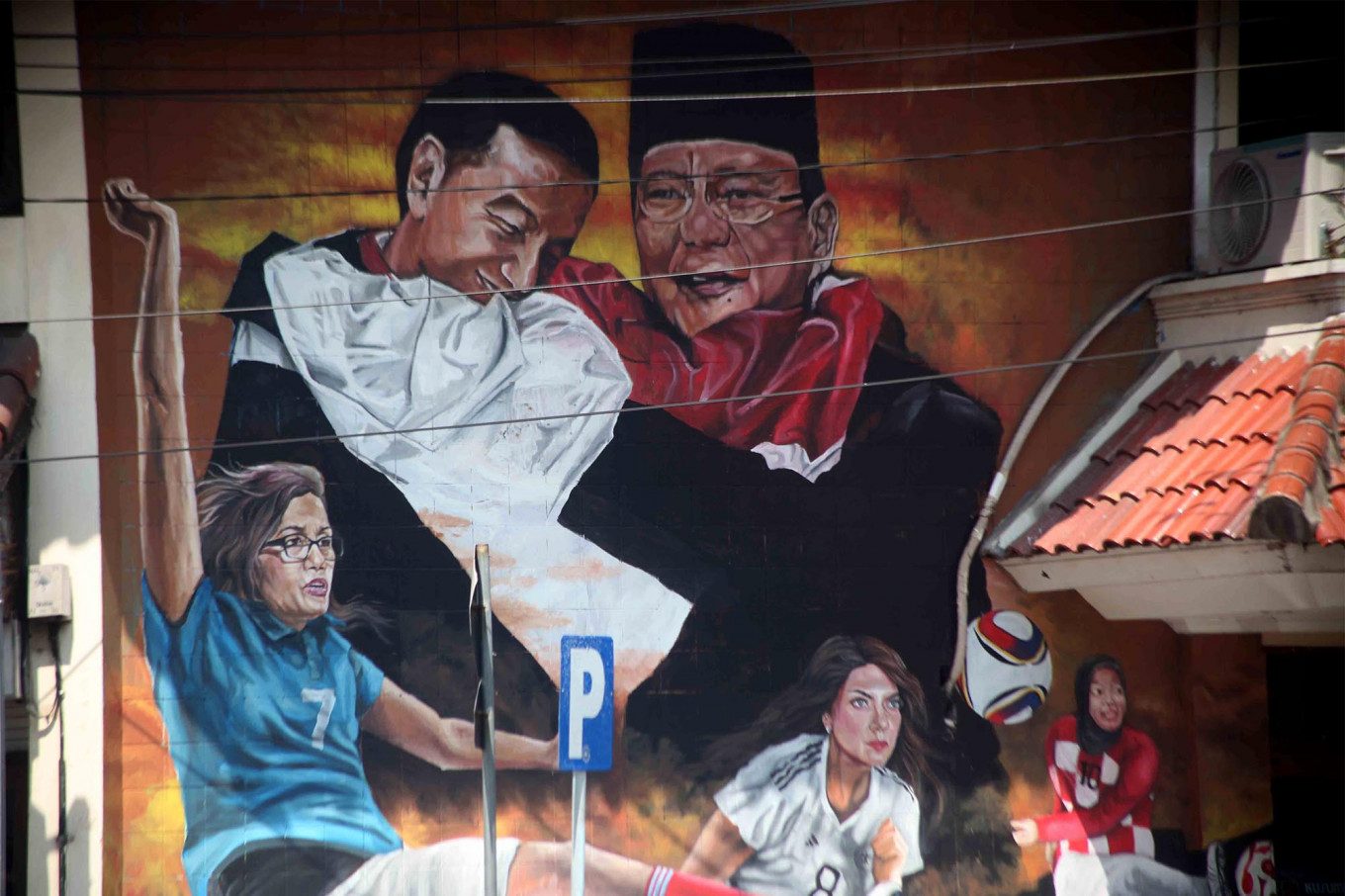Popular Reads
Top Results
Can't find what you're looking for?
View all search resultsPopular Reads
Top Results
Can't find what you're looking for?
View all search resultsMillennials key to election, if you could only get them to vote
Making up nearly half of the electorate, millennials are at the top of every political party’s target group list this election year. But the younger generation’s general disinterest in politics, coupled with a decreasing turnout rate, raises the question of whether candidates and political parties will be able to motivate millennials to vote.
Change text size
Gift Premium Articles
to Anyone
M
aking up nearly half of the electorate, millennials are at the top of every political party’s target group list this election year.
But the younger generation’s general disinterest in politics, coupled with a decreasing turnout rate, raises the question of whether candidates and political parties will be able to get millennials to exercise their right to vote at all come election day in April.
Moderators Ira Koesno and Imam Priyono made a point of specifically mentioning so-called netizens, the majority of whom are millennials, when they opened the first presidential debate earlier this month, and politicians from both President Joko “Jokowi” Widodo’s and Gerindra Party chairman Prabowo Subianto’s camp have repeatedly called on millennials to get out and vote.
Prabowo running mate and former deputy Jakarta governor Sandiaga Uno has been particularly assiduous in attending events aimed at young people and encouraging them to take part in the political process.
“Millennials have to become players, not just spectators,” Sandiaga said at the Indonesia Millennial Summit 2019 in Jakarta last week.
On Jokowi’s side, millennial-friendly young politicos like West Java Governor Ridwan Kamil and United Development Party (PPP) chairman Romahurmuziy have urged the younger generation to go to the polls on election day.
“Do not abstain,” Ridwan said at the same summit. “As I have said before, making the wrong choice will lead to five years of regret.”
Romahurmuziy echoed Ridwan’s comments, saying that Jokowi’s campaign team was aiming to obtain at least 45 percent of the millennial vote. “As part of [Jokowi’s] campaign team and as a supporting political party we continually look to approach millennials, so that they are not apolitical,” he said recently, as quoted by tribunnnews.com.
Both teams may be fighting an uphill battle, however, with political apathy on the rise, especially among millennials.
The abstention rate has shown an increasing trend since the 1999 general elections, with nearly 30 percent of registered voters abstaining in the 2014 presidential election and younger voters accounting for the majority of the abstentions.
A 2017 survey about millennials’ political orientation conducted by the Centre for Strategic and International Studies (CSIS) found that they had little interest in politics, with personal economic issues, such as employment, ranking first among the generation’s greatest concerns.
A more recent survey conducted by the IDN Research Institute and Jakarta-based pollster Alvara Research Center confirmed the findings, showing that only 23.4 percent of the 1,400 millennial respondents followed political news or kept up with political issues.
“For [millennials], political news in Indonesia is quite heavy, complicated and boring,” the survey’s report concludes. “Millennials prefer lighter news stories that are closer to their lives.”
Alvara Research Center CEO Hasanuddin Ali said that while millennials may make up a large proportion of eligible voters, he was doubtful as to whether they would turn up in large enough numbers to have a significant effect on the results of the upcoming election.
“In the polls that we have conducted since the presidential candidates were announced, millennials make up the largest proportion of undecided voters,” he told The Jakarta Post on Sunday. “And the level of loyalty of those who have made a choice is very low compared to Gen X or baby boomers.”
“Their three main topics of conversation are sports, music and film, [followed by] technology,” he said. “They just don’t like to talk about politics.”
That apathy is not confined to Indonesia: According to the recently released 2018 Deloitte Millennial Survey, millennials worldwide have a dim view of politics, with 71 percent seeing political leaders as having a negative impact on the world.
Hasanuddin said that getting out the millennial vote was a difficult task and that politicians should focus on a less lofty goal: gaining the generation’s favor.
“Because millennials are so active on social media, it's important for politicians not to get on their bad side, as that can quickly create a lot of hostility,” he said.
He added that both the Jokowi camp and the Prabowo camp had their own advantages with regard to the millennials.
“Nowadays, most young people dream of becoming successful entrepreneurs, so Sandiaga has an advantage there,” he said. “Meanwhile, Jokowi tries to get closer to them by attending music events, wearing sneakers and T-shirts and trying to show that there is no distance between them and the President.” (ipa)










